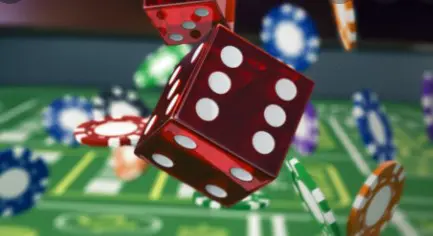Why is slot machine gambling so addictive? Unfortunately, the most addictive form of gambling is today.
These are the questions that They will answer in this article.
Psychologists use the term “intermittent reinforcement” to describe the effects of slot machines on psychological behavior. This means that winning hands occur only occasionally.
This reinforcer is very effective as it rewards the individual only occasionally. If you cite only sometimes, it is easy to become obsessed.
Dopamine, a neurotransmitter involved in gambling addiction, has been shown to play a significant role in this. As a result, it is easy to want more.
You’ve probably heard the term “gambling addict” to describe someone addicted to gambling. They don’t want to win money.
Dopamine plays an important and influential part in the brain—people who have Parkinson’s Disease develop an addiction to slot machine gambling. Many people were also affected by this condition. Slot machine addiction can be referred to as “crack cocaine gambling” for several reasons.
Crack cocaine has been called the most addictive drug currently in existence. Slot machine gambling is the most addictive form of gambling.
They can compare addiction’s rapid and accelerating progression to A slot machine addiction that can lead to complete despair and even death. Other forms of gambling do not progress as quickly.
This is another example of how addiction can cause despair, debasement, and hopelessness. It all depends on the addictive substance/behavior.
These addictions are pretty standard. But unfortunately, both of these addictions are very common.
It’s easy to see how slot machines addiction can be compared with crack cocaine addiction. Slot Machine Addiction Is the MOST Addictive Kind of Gambling.
This question is related to the topics I’ve already covered. However, there are some concepts I believe are worth noting.
These slot machines were created by psychologists and other specialists trained to intoxicate and seduce people.
Video multi-line electronic slot machines are visually stimulating. Video slot machine music can be stimulating, repetitive, and seductive.
Bonus rounds in video slot machines can motivate you to keep playing even if you lose a lot. These rounds are thrilling and can give you an adrenaline rush.
- Playing at high speeds with modern slot machines will keep you pumped, especially when you consider all other factors.
While the jackpots at slot machines can be huge, your chances of winning one are as good as winning the Powerball lottery.
Slot machines are an excellent place for “zoning out.” The slot machines can put you in a hypnotizing state, which is hard to break. - They can use slot machines without any technical knowledge.
You can continue playing the slots machines because they accept dollar bills. Money loses its value and becomes “monopoly cash.” - They can find ATMs close to slot machines. This encourages you to keep playing
- Many slots machines have denominations from 1 cent to 5 cents: a penny-sized or nickel-sized device.
Slot machines, with their bright lights, engaging sounds, and vibrant displays, aren’t just a game of chance. They’re a meticulously crafted psychological expedition. A hypnotic blend of sensation and excitement that tantalizes not only the senses but also the inner workings of our minds. What makes these machines so irresistible?
A Symphony of Stimulation: Step into a casino, and you’re embraced by a dazzling world of glitter and glow. Slot machines stand like beacons, their colorful touch-screens flashing and music pulsing. But this isn’t mere decoration. Every light, every sound has been designed to tease the human brain, to make the fingers itch to push that button again.
The Illusion of Control: Even in a world driven by random number generators, the player feels a master of the game. A deft pull of the lever, a lucky press on the screen, and the symbols might align. But this sense of skill is a façade, a carefully constructed illusion that keeps the coins dropping and the wheels spinning.
Sociability and Community: Stand by a row of slot machines, and you’ll hear laughter, sighs, even cheers. There’s camaraderie here, a shared thrill of the game, where strangers become allies, chasing the same glittering dream.
The Double-Edged Sword of Accessibility: From bars to airports, online apps to corner stores, slot machines have escaped the casino’s velvet ropes. They’re everywhere, tempting with their easy play and potential rewards. But accessibility comes with risks, risks that can lead to addiction and despair.
Variable Rewards: Win a little, lose a little more, win a bit again. It’s a dance, a constant tease of victory that makes quitting almost impossible. Each small win fuels the fire, each loss prompts the thought: “Maybe next time.”
Ethics and Regulations: All of this raises questions, uncomfortable ones about responsibility and control. How far should the game go in enticing the player? What’s entertainment, and what’s exploitation? Some regions have acted, setting limits, and rules, but the debate rages on.
The lure of the slot machine is not just a simple thrill; it’s a complex symphony of psychological triggers. Understanding these triggers is vital for players, regulators, and society at large. As technology continues to evolve, so too must our understanding of its impact on human behavior. In the captivating but perilous world of slot machine addiction, our choices, regulations, and insights may mean the difference between entertainment and affliction, joy and despair.


